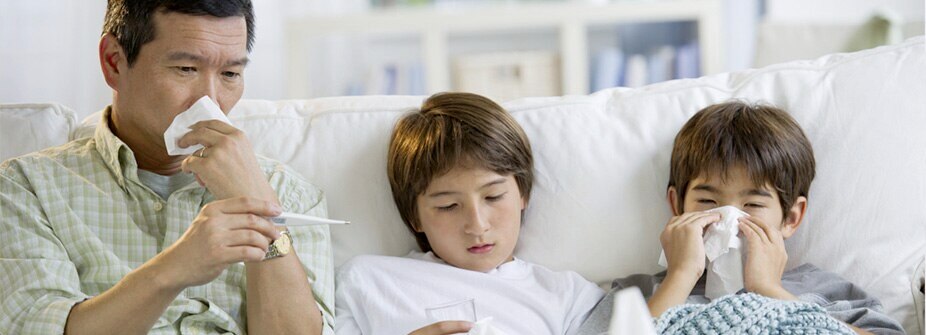What is a common cold?
The common cold is a mild respiratory tract infection (RTI), affecting the sinuses, throat, airways or lungs. Usually caused by a virus, common colds are highly contagious and may be spread via indirect and direct contact (sharing an infected cup or touching a sufferer) and by breathing in germs from contaminated air.
Respiratory Tract Infection
How to Handle the Common Cold
Common cold symptoms:
- Aching muscles
- Headaches
- Sneezing
- Tight chest
- Breathlessness
- Phlegmy cough
- Sore throat
- Wheezing
- Cough
- Quickened breathing
- Stuffy or runny nose
Common cold prevention:
Nutrition
Boost your defenses
Top up your body’s natural defenses with vitamin rich fruit and vegetables – dark red, green and yellow vegetables are best – as this will help your body fight off the virus.
Medical practices
Don’t share
Sharing cups, plates and cutlery with an infected person will share the germs too.
Use tissues
If you sneeze and cough into tissues, the virus-containing droplets from your nose and mouth won’t enter the air where they can infect others. (And don’t forget to throw away used tissues. Those germs can live on the tissues too!)
Hygiene habit
Wash your hands regularly
Common colds are highly contagious and if you and your family practice good hand hygiene by washing your hands with soap throughout the day the germs will be less likely to spread.
Common cold treatment:
Sleep it off
Getting plenty of rest will help you to recover faster – so it might be better not to go in to the office after all…
Stay hydrated
Drinking plenty of water will help to stave off symptoms of dehydration, such as headaches.
Treat symptoms with painkillers such as ibuprofen and paracetamol Consult your pharmacist to decide what’s best for you.
Consult your pharmacist to decide what’s best for you.
Clear your blocked nose with an over-the-counter decongestant.
These are available as a tablet or spray.
Mythbusters
Antibiotics can cure coughs and colds.
Most coughs and colds are caused by viruses. And, sadly, antibiotics cannot treat viruses.
‘You should have worn your jacket!’
A jacket won’t protect you from the common cold. It’s an infection and you don’t catch it from being out in cold weather; you catch it directly or indirectly from an infected person.
Medical source : British health authority
References
http://www.who.int/topics/respiratory_tract_diseases/en/
http://www.nhs.uk/conditions/Respiratory-tract-infection/Pages/Introduction.aspx
http://www.webmd.com/cold-and-flu/boost-immunity-8/immune-system
http://nhslocal.nhs.uk/my-health/conditions/c/cold-common/all
http://www.nhs.uk/Conditions/Antibiotics-penicillins/Pages/QandA.aspx
http://kidshealth.org/parent/infections/common/cold.html




